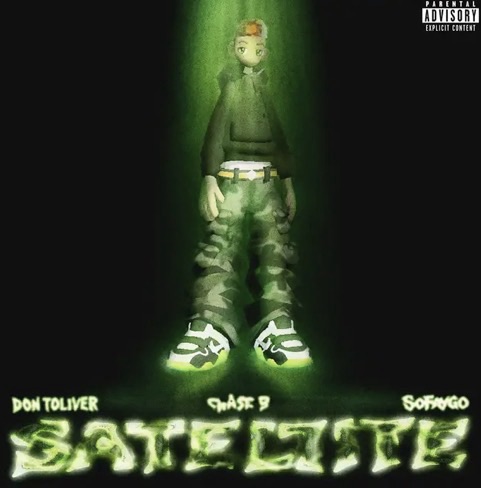
Bryson Tiller just dropped disc one to his album “Solace and The Vices.”
STREAM
TOP 5 SONGS
5. Strife
We are aiming for relationships without strife.
“Strife” dives into the uglier side of relationships, unpacking fights, trauma, and cycles that never seem to break. The track doesn’t sugarcoat—it paints a picture of screaming matches, cheating, and emotional exhaustion. Bryson goes deeper than the surface-level drama, though, pointing to childhood trauma and immature tendencies as the roots of the conflict. What keeps the track from being entirely bleak is the undercurrent of hope. He insists that it doesn’t have to be this way; therapy and patience could ease the constant yelling.
The beat is tense, with darker tones and heavier bass that mirror the emotional chaos. Still, Bryson’s delivery balances sharp frustration with weary longing. Unfortunately, the song doesn’t end with a neat resolution, which makes it feel real.
“Strife” resonates because it captures the push and pull so many couples face—knowing peace is possible, but struggling to reach it when emotions and old wounds get in the way.
4. Sick Interlude
I’m sure most people can relate to this one.
Usually, interludes are skippable, but “Sick Interlude” demands attention. Clocking in short, it still carries heavy weight. Bryson uses it to vent exhaustion—not just with relationships, but with life itself. He’s sick of being excluded, sick of lies and deceit, sick of trying so hard only to face judgment. It’s less a song and more a stream of consciousness, almost journal-like, but that’s where its power lies.
The production is sparse, keeping the focus squarely on his words. The imagery of everyone trying to write their own story, only to feel like it’s for nothing, captures a universal frustration. It’s a moment of shared humanity, where listeners can nod along and think, yeah, I’ve felt that too.
3. I Need Her
Tiller’s girl isn’t just his lover; she’s his muse.
“I Need Her” is the kind of track that sets a high standard for what devotion sounds like. It’s sensual and pleading, but not in a desperate way—instead, it feels like honest admiration. He sings about needing her not just for love, but as the muse for his art. Without her, there are no love songs; with her, there’s endless inspiration.
The metaphor of her voice being like his favorite radio song hits hard, portraying her as both a comfort and an obsession. Musically, the track relies on smooth R&B production, featuring steady percussion and subtle layering that allows his vocals to do most of the heavy lifting. What makes it stand out is the intimacy—it doesn’t sound like Bryson is singing to an audience, but directly to her. The effect is magnetic, showing how vulnerability can be just as powerful as bravado.
2. Genuine
Once friends are now opps; was it ever really genuine?
On “Genuine,” Bryson shifts away from romance and focuses on the fracture of friendships. Over a beat that leans heavier into rap production, he comes at this track with intensity, almost venting as much as rapping. The lyrics cut into the pain of seeing people you grew up with turn into enemies, and people you once considered family now waiting for your downfall.
The vulnerability comes through in his delivery, which has both sharpness and hurt, as if he’s still wrestling with the reality of betrayal. The song is less about closure and more about confrontation, forcing both Bryson and his listeners to sit with the discomfort of broken trust. It’s one of the record’s standout moments because it broadens the emotional scope—reminding us that betrayal doesn’t just live in romance. Sometimes it comes from the people you least expect.
1. Uncertainty
Have you ever felt uncertain that a relationship is right?
This track is stripped down and intimate, with finger snaps guiding the beat and Bryson’s voice carrying the weight. “Uncertainty” is a breakup song, but it’s not angry or explosive—it’s weary, sad, and heavy. He reflects on the suffocating pressure of a relationship where he no longer feels secure, where the other person’s unresolved feelings for someone else cast a shadow over everything. It’s one of the more emotional cuts on the album, leaning closer to a ballad than most of the project. The vulnerability is stark, and the production gives it room to breathe.
What makes “Uncertainty” so effective is its rawness—it feels less like a polished track and more like Bryson is laying it all out in real time, unsure of what comes next but needing to let the words spill out.
SONG BY SONG RATING
1. Strife (4/5)
2. No Contest (4/5)
3. Workaholic (3.5/5)
4. I Need Her (4/5)
5. Autumn Drive (4/5)
6. Genuine (4/5)
7. Uncertainty (4.5/5)
8. Damn (4/5)
9. Sick Interlude (4/5)
10. Star Signs (4/5)
11. Harley’s Outro (N/A)
RGM RATING
(80%)
Solace & The Virtues is Bryson Tiller at his most layered, offering an album that swings between devotion, conflict, betrayal, and exhaustion. The title itself hints at the duality running through the record: solace as comfort, virtues as lessons. Across the project, Bryson wrestles with both, questioning relationships, friendships, and even himself.
The album doesn’t stick to one lane. Tracks like “I Need Her” show his romantic and sensual side, while “Strife” captures the chaos of love on the rocks. “Genuine” turns the spotlight toward fractured friendships, expanding the scope of heartbreak beyond romance. Songs like “Uncertainty” slow everything down, pulling listeners into raw, vulnerable spaces, while “Sick Interlude” underscores the exhaustion of trying to navigate life’s weight.
Musically, the project strikes a balance between traditional R&B smoothness and more rap-heavy elements, allowing Bryson’s versatility to shine. It’s not a flawless record—some tracks feel heavy without offering much variation—but what makes it powerful is its honesty. He’s not afraid to sit in discomfort, whether that’s jealousy, betrayal, or self-doubt.
At its core, Solace & The Virtues feels like a project about survival and honesty. Bryson doesn’t present answers so much as he shares truths, giving listeners a record that’s messy, real, and deeply human. It’s an album that mirrors life itself—unresolved, contradictory, but worth holding onto.
Discover more from RGM
Subscribe to get the latest posts sent to your email.










This Post Has One Comment
Pingback: Bryson Tiller- Solace (Album Review) - LagacyNews